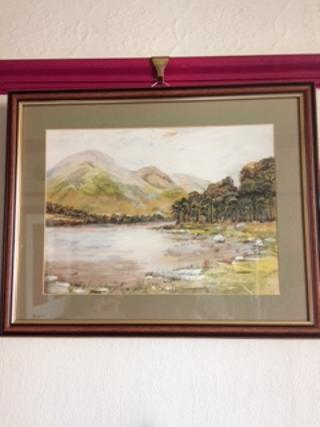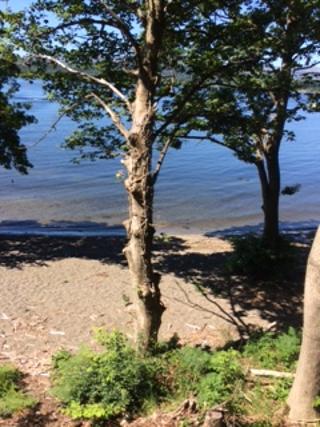Please welcome this weeks guest to the Showcase.
Over to you Angela,
I find the hardest part of writing novels isn’t the actual writing – that seems to flow naturally – but the marketing of the books once they are published, especially if you are not very outgoing, like me.
Social media is one of the platforms for announcing to the world that you have these fabulous books, but there are so many millions published every week, yours is just a tiny fish in the huge ocean. That is why having friends like Richard Dockett can be so beneficial. Getting your name ‘out there’ is what is needed and the more help you can obtain, the more you can be seen and eventually recognised.
A little bit about me:
This is part of an article I wrote for Short Books and Scribes, a blog tour organised by Rachel’s Random Resources:
I love editing. In fact, you could almost call it an obsession.
In The Peacock Bottle there are two stories, set over fifty years apart, and I had to make sure I used the correct characters for each timeline. Even though I kept lists of each family’s names, it was not until my fifth edit that I realised one of the servants had crossed over to the other story. I’m sure she would have felt out of place in the wrong time, and with people she would not know, but she did not say a word, did not let me know. Luckily I found her and moved her back to her own era before the final edit.
An extract from The Peacock Bottle:
Her stepmother continued, “We ought to take you to a hospital. Does the town contain such a place, Jenny?”
The maid had been staring at Amelia’s injury as if mesmerised. “I beg your pardon, ma’am?”
“A hospital in Cockermouth?”
“Um, no, ma’am. There’s the workhouse on Gallowbarrow, but no hospital.”
“Don’t use that detestable word in this house.”
Taken aback at the venom in her stepmother’s voice, Amelia gasped. Never had she known her use such a tone. “Mamma?”
“I’m sorry for my outburst, but we nearly ended up in one of those abominable places. After the fire, before the reading of the will, I feared we would. Of course we did not, but the mere notion sends shivers up my spine.”
As I said in one of the other articles I wrote for my blog tour, writing dialogue comes easily to me, much more so than long, descriptive pieces about scenery or a person’s features and clothes. I would rather read dialogue, and when I come across pages of description in a book, I flick through, only taking in an occasional word or two to satisfy my need to know what is happening.
I started compiling my family tree about fifteen years ago and discovered that every one of my paternal direct ancestors lived in what was then called Cumberland. No wonder I feel such an affinity to The Lake District and love going there on holiday. I have found family as far back as 1475, and met cousins I didn’t know I had. Nowadays most of it is done on the internet although I still love to visit records offices and trawl through bishops’ transcripts to find familiar names. In the 1911 census I can also see the signatures of the head of each household.
Genealogy is involved in my novel The Peacock Bottle, set in Cockermouth, and we find out in the end how the characters are connected.

One character, Mary Jane, paints landscapes. I based her on my Great Auntie Jane, born in 1875, who painted a watercolour of Loweswater that hangs on my wall. I remember meeting her when I was fourteen, as she had married and moved to Doncaster where we lived then. She had clearly not lost her love of the outdoors as even though she would have been eighty-six years old we found her working in the fields of peas that she and her husband grew for a well-known firm.
My father’s sister, Auntie Nancie – after whom I named my YA book ‘Nancie’ – had many other pictures painted by Auntie Jane, and I have only recently found out that my oldest sister, Monica, inherited them. Unfortunately, when Monica died a few years ago, her daughter did not realise the significance, and gave them all to a charity shop!
A few years back, on one of our many holidays in Kendal, we decided to find the exact spot my auntie would have sat to paint the picture. We parked near the area and, after trudging through fields of shoulder-length grass we found it, although a barbed-wire fence prevented us from reaching the shoreline. Apart from one of the trees in the foreground being much bigger, there is hardly any difference, and we took photos to compare them.
I have since obtained another of my aunt’s pictures from a cousin, who had it in his attic, so next time we visit The Lake District, guess what we will be doing?
In an article posted by Historical Fiction with Spirit, I explained that one of my other books, ‘Florence and the Highwayman’, is also set in The Lake District, in Ambleside.
Here’s a link to the book,
https://bookgoodies.com/a/B018E5P1SI
An extract from Florence and the Highwayman. When the family go for a walk in Ambleside:
“May we go past that curious little house on Rattle Gill that spans the Stock Gyll? It’s the smallest house I’ve ever seen.”
“Certainly,” replied Florence. “It’s over two hundred years old, and was built as a summer house, so they say.” She turned to her mother. “Maybe we could sell our house and buy that. It would just about fit the five of us.”
“Do not be ridiculous. Where would the servants sleep, and how would I fit all my clothes?”
Florence laughed as Felicity continued, “Then we could go down to the lake to see the swans. I love it when they hiss at you.”
It is such fun looking around towns feeling the ambiance, and finding street names I can use. I imagine the characters walking along, seeing some of the sights I can see, although as the books are set in the late nineteenth century, some would be different.

I spend a lot of time doing research for my books and love finding out new things I didn’t know about the times and lives of the Victorians, as well as about Queen Victoria herself. So many things have changed since then, but people are the same really. They still have the same hopes for a better future. Luckily, many of those dreams have come true, and modern-day folk aren’t as destitute as the majority of working-class people in those days. With the welfare state, nobody should live in such abject poverty and squalor that the Victorians suffered.
I hope to have many more enjoyable holidays in the Lake District and maybe another book will be inspired by the beauty of the mountains, the fells and the lakes.
My thanks to this weeks guest for a great post. I hope you all enjoyed it.
While you’re here, why not have a look around the site? There are FREE things and a whole lot more, just follow the links at the top of the page.
You might also like to join my team. I’ll send you a bi-monthly newsletter, filled with news, updates and extra content, as well as more about me and my worlds. You’ll also get a free short story and offers on my novels. Subscribe by clicking HERE
If you want to be featured in a future Showcase, where you can write about whatever (within reason) you want, then please let me know. Use the comment box below and I’ll get back to you.
You can catch up on previous Showcase posts by clicking HERE
Don’t miss the Saturday Rewind, next Thursdays Showcase post, and my musings every Monday.
Have a good week,
Richard.
![]()


